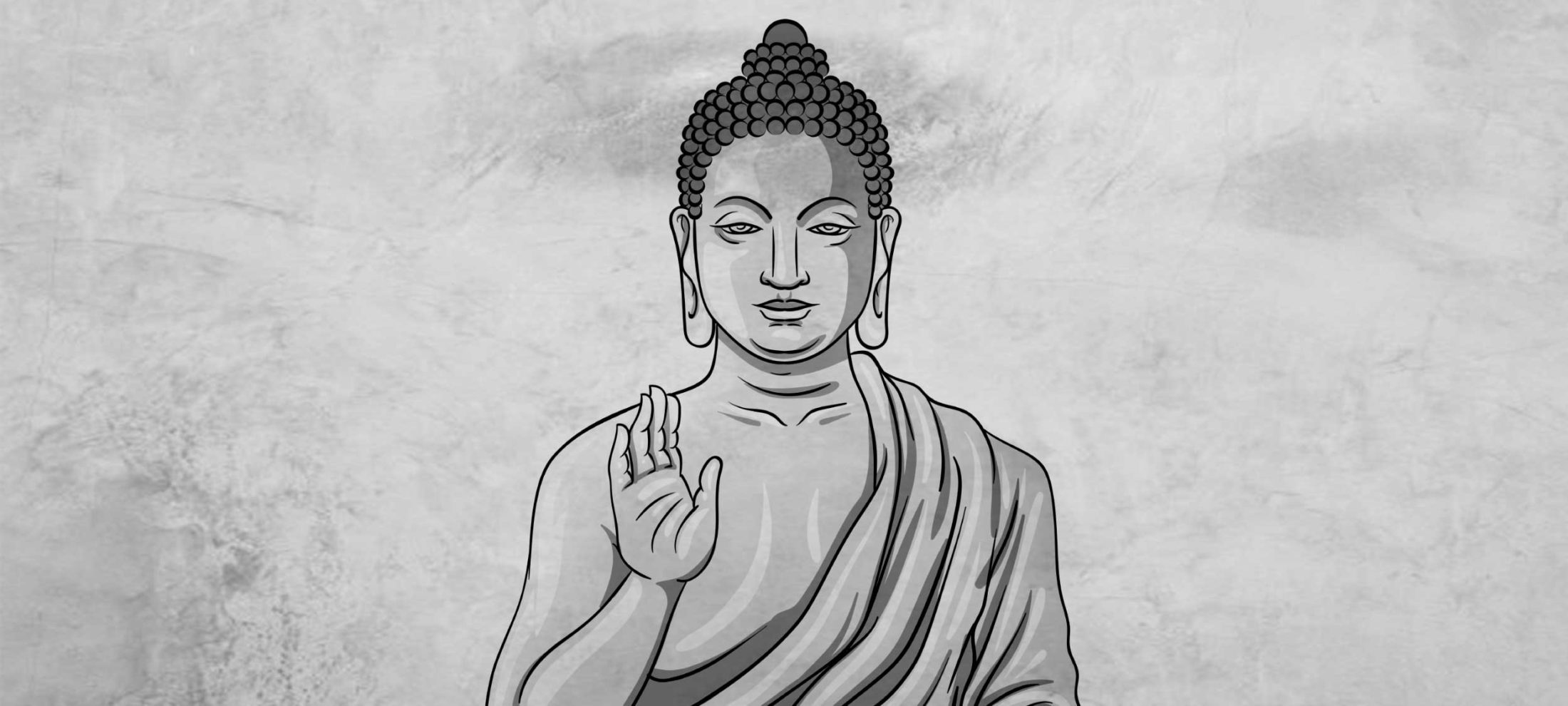Ethics Explainer: Begging the question

Begging the question is when you use the point you’re trying to prove as an argument to prove that very same point. Rather than proving the conclusion is true, it assumes it.
It’s also called circular reasoning and is a logical fallacy.
Should I trust Steve?
Premise: Steve is a trustworthy person because I trust him.
Conclusion: Therefore, you should trust Steve.
Let’s replace the word ‘trust’ with ‘love’.
Premise: Steve is a lovable person because I love him.
Conclusion: Therefore, you should love Steve.
Are you any closer to figuring out why Steve is trustworthy or loved?
As a logical argument, here’s how it looks.
Premise: Steve is X because X.
Conclusion: Therefore, you should X because X.
The conclusion and the premise make the same claim. That is, they say the same thing.
Though the logical structure is valid, there’s no argument to move on from. We’re no closer to understanding why Steve is trustworthy or lovable.
Rather than assuming the conclusion is true from the beginning, let’s prove it.
Premise 1: Reliable people can be trusted.
Premise 2: Steve is a reliable person.
Conclusion 1: Therefore, Steve can be trusted by any person.
Premise 3: You are a person.
Conclusion 2: Therefore, you should trust Steve.
This way, even if Steve is clearly trustworthy, you’re using a good argument to help his case.
A leading question
Here’s another related example:
‘If we accept your argument that people who download movies should be put in jail, who should provide the education they receive while they’re in prison?’
This is called a leading question. It sneaks in a claim that needs to be argued for in the form of a question.
In this example, the claim is that people who are put in jail should receive education programs. That might be true, it might not, but because it forces the answer to go in a certain direction, it is an example of begging the question.
Radio interviews and talk shows conversations can beg the question by asking leading questions that try to box you in to a certain answer. Being able to spot a leading question is useful – it allows us to be critical not only of other people’s arguments, but the way they frame the question.
Note: when people say ‘this begs the question that’ they actually mean ‘this raises the question that’. In this context, they’re usually not referring to the logical fallacy.
Ethics in your inbox.
Get the latest inspiration, intelligence, events & more.
By signing up you agree to our privacy policy
You might be interested in…
Opinion + Analysis
Relationships
If women won the battle of the sexes, who wins the war?
Opinion + Analysis
Business + Leadership, Relationships
So your boss installed CCTV cameras
Opinion + Analysis
Politics + Human Rights, Relationships, Society + Culture
The sticky ethics of protests in a pandemic
Big thinker
Politics + Human Rights, Relationships
Big Thinker: Mary Wollstonecraft
BY The Ethics Centre
The Ethics Centre is a not-for-profit organisation developing innovative programs, services and experiences, designed to bring ethics to the centre of professional and personal life.
Ethics Explainer: Ad Hominem Fallacy

Ad hominem, Latin for “to the man”, is when an argument is rebutted by attacking the person making it rather than the argument itself. It is another informal logical fallacy.
The logical structure of an ad hominem is as follows:
- Person A makes a claim X.
- Person B attacks person A.
- Therefore, X is wrong.
When you see the logical structure of the argument it becomes clear why it’s a fallacy. The truth or falsehood of X has nothing to do with the person arguing in support of it. Imagine if X had been written down and you didn’t know who was arguing the case. If you couldn’t prove it wrong with arguments, then you can’t prove it wrong at all.
Here are some common ad hominem arguments:
Argument from abuse
Steve: “I don’t think we should catch a taxi to dinner. It’s just a short walk and the environment doesn’t need the extra pollution.”
Jaime: “You would say that – you’re so cheap!”
Jaime’s rebuttal doesn’t address Steve’s argument. Instead it abuses him as a person. Not only is this unpleasant, it’s fallacious because Steve’s character doesn’t impact on the truth or falsehood of what he said.
‘Tu quoque’ fallacy
Jaime: “Now that online streaming services are affordable and available in Australia, there’s no justification for pirating films anymore. People shouldn’t do it.”
Steve: “But earlier you’d said you were about to download a torrent for the new Game of Thrones!”
‘Tu quoque’ is Latin for “you also”. The ‘tu quoque’ fallacy occurs when an argument is rebutted because the arguer’s own behaviour is contrary to what they’re arguing. While this is a good way of highlighting hypocrisy, it isn’t a refutation. Just because a person doesn’t ‘walk the walk’ doesn’t mean what they say is false.
Appeal to authority
Steve: I don’t believe in God. Richard Dawkins is an atheist and he’s really smart.
The appeal to authority is actually a reverse ad hominem in which the credentials of another person are used to strengthen an argument. Rather than relying on arguments against God’s existence, Steve relies on the authority of other people who don’t believe in God.
Although it isn’t criticising the person making the argument, it still doesn’t deal with the argument itself. The appeal to authority is another kind of ad hominem fallacy.
Note that the ad hominem fallacy only applies to attempts to discredit (or strengthen) an argument by reference to the person making the argument. In court cases, lawyers will often use a person’s character to prove or undermine their credibility.
This is not necessarily a case of ad hominem – credibility is about whether or not we should believe whether a person is telling the truth, not whether the arguments they make are reasonable ones or not.
Ethics in your inbox.
Get the latest inspiration, intelligence, events & more.
By signing up you agree to our privacy policy
You might be interested in…
Big thinker
Relationships
Big Thinker: Friedrich Nietzsche
Big thinker
Relationships
Big Thinker: Buddha
Opinion + Analysis
Business + Leadership, Relationships
Game, set and match: 5 principles for leading and living the game of life
Opinion + Analysis
Relationships
5 stars: The age of surveillance and scrutiny
BY The Ethics Centre
The Ethics Centre is a not-for-profit organisation developing innovative programs, services and experiences, designed to bring ethics to the centre of professional and personal life.
Ethics Explainer: Dirty Hands

Ethics Explainer: Dirty Hands
ExplainerBusiness + LeadershipPolitics + Human Rights
BY The Ethics Centre 29 MAR 2016
The problem of dirty hands refers to situations where a person is asked to violate their deepest held ethical principles for the sake of some greater good.
The problem of dirty hands is usually seen only as an issue for political leaders. Ordinary people are typically not responsible for serious enough decisions to justify getting their hands ‘dirty’. Imagine a political leader who refuses to do what is necessary to advance the common good – what would we think of them?
Michael Walzer steps in
This was the question philosopher Michael Walzer asked when he discussed dirty hands, and another philosopher, Max Weber, had asked before him.
Walzer asks us to imagine a politician who is elected in a country that has been devastated by civil war, and who campaigned on policies of peace, reconciliation and an opposition to torture. Immediately after this politician is elected, he is asked to authorise the torture of a terrorist. The terrorist has hidden bombs throughout apartments in the city which will explode in the next 24 hours. Should the politician authorise the torture in the hope the information provided by the terrorist might save lives?
Finding common ground
This is a pretty common ethical dilemma, and different ethical theories will give different answers. Deontologists will mostly refuse, taking the ‘absolutist’ position that torture is an attack on human dignity and therefore always wrong. Utilitarians will probably see the torture as the action leading to the best outcomes and argue it is the right course of action.
What makes dirty hands different is it treats each of these arguments seriously. It accepts torture might always be wrong, but also that the stakes are so high it might also be the right thing to do. So, the political leader might have a duty to do the wrong thing – but what they are required to do is still wrong. As Walzer says, “The notion of dirty hands derives from an effort to refuse ‘absolutism’ without denying the reality of the moral dilemma”.
The paradox of dirty hands – that the right thing to do is also wrong – poses a challenge to political leaders. Are they willing to accept the possibility they might have to get their hands dirty and be held responsible for it? Walzer believes the moral politician is one who has dirty hands, acknowledges it, and is destroyed by it (because of feelings of guilt, punishment and so on): “it is by his dirty hands that we know him”.
Note that we’re not talking about corruption here where politicians get their hands dirty for their own selfish reasons, like fraudulent reelection or profit. What we’re talking about is when a politician might be obliged to violate their deepest personal values or the ethical creeds of their community in order to achieve some higher good, and how the politician should feel about having done so.
A remorseful politician?
Walzer believes politicians should feel wracked with guilt and seek forgiveness (and even demand punishment) in response to having dirtied their hands. Other thinkers disagree, notably Niccolo Machiavelli. He was also aware political leaders would sometimes have to do ‘what’s necessary’ for the public good. But even if those actions would be rejected by private ethics, he didn’t think decision makers should feel guilty about it.
Machiavelli felt indecision, hesitation, or squeamishness in the face of doing what’s necessary wasn’t a sign of a good or virtuous political leader – it was a sign they weren’t cut out for the job. Under this notion, the good political leader won’t just accept getting their hands dirty, they’ll do it whenever necessary without batting an eyelid.
Ethics in your inbox.
Get the latest inspiration, intelligence, events & more.
By signing up you agree to our privacy policy
You might be interested in…
Opinion + Analysis
Business + Leadership, Politics + Human Rights
Ask the ethicist: If Google paid more tax, would it have more media mates?
Opinion + Analysis
Business + Leadership
Survivor bias: Is hardship the only way to show dedication?
Opinion + Analysis
Politics + Human Rights, Relationships
When human rights complicate religious freedom and secular law
Reports
Business + Leadership
Ethics in the Boardroom
BY The Ethics Centre
The Ethics Centre is a not-for-profit organisation developing innovative programs, services and experiences, designed to bring ethics to the centre of professional and personal life.
Ethics Explainer: Double-Effect Theory

Double-effect theory recognises that a course of action might have a variety of ethical effects, some ‘good’ and some ‘bad’.
It can be seen as a way of balancing consequentialist and deontological approaches to ethics.
According to the theory, an action with both good and bad effects may be ethical as long as:
- Only the good consequences are intended (we don’t want the bad effects to occur, they’re just inescapable, even if they can be foreseen).
- The good done by the action outweighs the harm it inflicts.
- The bad effect is not the means by which the good effect occurs (we can’t do evil to bring about good – the good and bad consequences have to occur simultaneously).
- The act we are performing is not unethical for some other reason (for example, an attack on human dignity).
- We seek to minimise, if possible, the unintended and inadvertent harm that we cause.
Double-effect is best explained through the classic thought experiment: the Trolley problem.
Imagine a runaway train carriage is hurtling down the tracks toward five railroad workers. The workers are wearing earmuffs and unable to hear the carriage approaching. You have no way of warning them. However, you do have access to a lever which will divert the train onto a side-track on which only one person is working. Should you pull the lever and kill the one man to save five lives?
Take a moment to think about what you would do and your reasons for doing it. Now, consider this alternative.
The train is still hurtling toward the five workers but this time there’s no lever. Instead, you’re a lightweight person standing on a bridge above the railroad. Next to you is a very large man who would be heavy enough to stop the train. You could push the man onto the tracks and stop the train, but it would kill the heavy man. Should you push him off the bridge?
Again, think about what you would do and why you would do it.
Did you say ‘yes’ in the first scenario and ‘no’ in the second? That’s the most common response, but why? After all, in each case you’re killing one person to save five. According to many consequentialists that would be the right thing to do. By refusing to push the man off the bridge, are we being inconsistent?
Double-effect theory provides a way of consistently explaining the difference in our responses.
In the first case, our intention is to save five lives. An unintended, foreseeable consequence of pulling the lever is the death of one worker. But because the stakes are sufficiently high, our intended act (pulling a lever to redirect a train) isn’t intrinsically wrong. The good consequences outweigh the bad. The negative outcomes are side-effects of our good action, and so, we are permitted to pull the lever.
In the second case, the death of the heavy man is not a side-effect. Rather, it is the means (pushing the man off the bridge to stop the train) by which we achieve our goal (saving the five men). The negative outcomes are not unavoidable side-effects that occur at the same time as the good deed. It is causally prior to and directly linked to the good outcome.
This fact has ethical significance because it changes the structure of the action.
Instead of ‘saving lives whilst unavoidably causing someone to die’, it is a case of ‘killing one person deliberately in order to save five’. In the lever scenario, we don’t need the one worker to die in order to save the five. In the latter, we need the heavy man to die. Which means when we push him, we are intentionally killing him.
Double-effect is used in a range of different contexts. In medical ethics it can be used to explain why it would be ethical for a pro-life pregnant woman to take life-saving medicine even if it would likely kill her unborn child (unintended side-effect). It also explains the actions of doctors who increase the dose of opiates to end pain – even though they know that the dosage will end the patient’s life.
In military ethics it explains how an air strike which causes some unavoidable ‘collateral damage’ (the death or injury of non-combatants) might still be permissible – assuming it meets the criteria described above and involves the proportionate and discriminate use of force.
Ethics in your inbox.
Get the latest inspiration, intelligence, events & more.
By signing up you agree to our privacy policy
You might be interested in…
Opinion + Analysis
Relationships, Science + Technology
Should you be afraid of apps like FaceApp?
Opinion + Analysis
Business + Leadership, Relationships
So your boss installed CCTV cameras
Opinion + Analysis
Relationships
Should we abolish the institution of marriage?
Opinion + Analysis
Relationships, Science + Technology
With great power comes great responsibility – but will tech companies accept it?
BY The Ethics Centre
The Ethics Centre is a not-for-profit organisation developing innovative programs, services and experiences, designed to bring ethics to the centre of professional and personal life.
Ethics Explainer: Logical Fallacies

Ethics Explainer: Logical Fallacies
ExplainerHealth + WellbeingSociety + Culture
BY The Ethics Centre 8 MAR 2016
A logical fallacy occurs when an argument contains flawed reasoning. These arguments cannot be relied on to make truth claims. There are two general kinds of logical fallacies: formal and informal.
First off, let’s define some terms.
- Argument: a group of statements made up of one or more premises and one conclusion.
- Premise: a statement that provides reason or support for the conclusion
- Truth: a property of statements, i.e. that they are the case
- Validity: a property of arguments, i.e. that they are logically structured
- Soundness: a property of statements and arguments, i.e. that they are valid and true
- Conclusion: the final statement in an argument that indicates the idea the arguer is trying to prove
Formal logical fallacies
These are arguments with true premises, but a flaw in its logical structure. Here’s an example:
- Premise 1: In summer, the weather is hot.
- Premise 2: The weather is hot.
- Conclusion: Therefore, it is summer.
Even though statement 1 and 2 are true, the argument goes in circles. By using an effect to determine a cause, the argument becomes invalid. Therefore, statement 3 (the conclusion) can’t be trusted.
Informal logical fallacies
These are arguments with false premises. They are based on claims that are not even true. Even if the logical structure is valid, it becomes unsound. For example:
- Premise 1: All men have hairy beards.
- Premise 2: Tim is a man.
- Conclusion: Therefore, Tim has a hairy beard.
Statement 1 is false – there are plenty of men without hairy beards. Statement 2 is true. Though the logical structure is valid (it doesn’t go in circles), the argument is still unsound. The conclusion is false.
A famous example of an argument that is both valid, true, and sound is as follows.
- Premise 1: All men are mortal.
- Premise 2: Socrates is a man.
- Conclusion: Socrates is mortal.
It’s important to look out for logical fallacies in the arguments people make. Bad arguments can lead to true conclusions, but there is no reason for us to trust the argument that got us to the conclusion. We might have missed something or it might not always be the case.
Ethics in your inbox.
Get the latest inspiration, intelligence, events & more.
By signing up you agree to our privacy policy
You might be interested in…
Opinion + Analysis
Health + Wellbeing, Politics + Human Rights
Feminist porn stars debunked
Opinion + Analysis
Health + Wellbeing, Business + Leadership
The ethical dilemma of the 4-day work week
Explainer
Health + Wellbeing, Relationships
Ethics Explainer: Values
Opinion + Analysis
Society + Culture, Politics + Human Rights
Taking the cynicism out of criticism: Why media needs real critique
BY The Ethics Centre
The Ethics Centre is a not-for-profit organisation developing innovative programs, services and experiences, designed to bring ethics to the centre of professional and personal life.
Ethics Explainer: Deontology

Deontology is an ethical theory that says actions are good or bad according to a clear set of rules.
Its name comes from the Greek word deon, meaning duty. Actions that align with these rules are ethical, while actions that don’t aren’t. This ethical theory is most closely associated with German philosopher, Immanuel Kant.
His work on personhood is an example of deontology in practice. Kant believed the ability to use reason was what defined a person.
From an ethical perspective, personhood creates a range of rights and obligations because every person has inherent dignity – something that is fundamental to and is held in equal measure by each and every person.
This dignity creates an ethical ‘line in the sand’ that prevents us from acting in certain ways either toward other people or toward ourselves (because we have dignity as well). Most importantly, Kant argues that we may never treat a person merely as a means to an end (never just as a resource or instrument).
Kant’s ethics isn’t the only example of deontology. Any system involving a clear set of rules is a form of deontology, which is why some people call it a “rule-based ethic”. The Ten Commandments is an example, as is the Universal Declaration of Human Rights.
Most deontologists say there are two different kinds of ethical duties, perfect duties and imperfect duties. A perfect duty is inflexible. “Do not kill innocent people” is an example of a perfect duty. You can’t obey it a little bit – either you kill innocent people or you don’t. There’s no middle-ground.
Imperfect duties do allow for some middle ground. “Learn about the world around you” is an imperfect duty because we can all spend different amounts of time on education and each be fulfilling our obligation. How much we commit to imperfect duties is up to us.
Our reason for doing the right thing (which Kant called a maxim) is also important.
We should do our duty for no other reason than because it’s the right thing to do.
Obeying the rules for self-interest, because it will lead to better consequences or even because it makes us happy is not, for deontologists, an ethical reason for acting. We should be motivated by our respect for the moral law itself.
Deontologists require us to follow universal rules we give to ourselves. These rules must be in accordance with reason – in particular, they must be logically consistent and not give rise to contradictions.
It’s worth mentioning that deontology is often seen as being strongly opposed to consequentialism. This is because in emphasising the intention to act in accordance with our duties, deontology believes the consequences of our actions have no ethical relevance at all – a similar sentiment to that captured in the phrase “Let justice be done, though the heavens may fall”.
The appeal of deontology lies in its consistency. By applying ethical duties to all people in all situations the theory is readily applied to most practical situations. By focussing on a person’s intentions, it also places ethics entirely within our control – we can’t always control or predict the outcomes of our actions, but we are in complete control of our intentions.
Others criticise deontology for being inflexible. By ignoring what’s at stake in terms of consequences, some say it misses a serious element of ethical decision-making. De-emphasising consequences has other implications too – can it make us guilty of ‘crimes of omission’? Kant, for example, argued it would be unethical to lie about the location of our friend, even to a person trying to murder them! For many, this seems intuitively false.
One way of resolving this problem is through an idea called threshold deontology, which argues we should always obey the rules unless in an emergency situation, at which point we should revert to a consequentialist approach.
But is this a cop-out? How do we define ‘emergency’?
Ethics in your inbox.
Get the latest inspiration, intelligence, events & more.
By signing up you agree to our privacy policy
You might be interested in…
Opinion + Analysis
Climate + Environment, Politics + Human Rights, Relationships, Society + Culture
The youth are rising. Will we listen?
Opinion + Analysis
Politics + Human Rights
Lies corrupt democracy
Big thinker
Politics + Human Rights
Big Thinker: Michael Sandel
Opinion + Analysis
Politics + Human Rights
A note on Anti-Semitism
BY The Ethics Centre
The Ethics Centre is a not-for-profit organisation developing innovative programs, services and experiences, designed to bring ethics to the centre of professional and personal life.
BY ethics
Ethics Explainer: Virtue Ethics

Virtue ethics is arguably the oldest ethical theory in the world, with origins in Ancient Greece.
It defines good actions as ones that display embody virtuous character traits, like courage, loyalty, or wisdom. A virtue itself is a disposition to act, think and feel in certain ways. Bad actions display the opposite and are informed by vices, such as cowardice, treachery, and ignorance.
For Aristotle, ethics was a key element of human flourishing because it taught people how to differentiate between virtues and vices. By encouraging examination, more people could live a life dedicated to developing virtues.
It’s one thing to know what’s right, but it’s another to actually do it. How did Aristotle advise us to live our virtues?
By acting as though we already have them.
Excellence as habit
Aristotle explained that both virtues and vices are acquired by repetition. If we routinely overindulge a sweet tooth, we develop a vice — gluttony. If we repeatedly allow others to serve themselves dinner before us, we develop a virtue – selflessness.
Virtue ethics suggests treating our character as a lifelong project, one that has the capacity to truly change who we are. The goal is not to form virtues that mean we act ethically without thinking, but to form virtues that help us see the world clearly and make better judgments as a result.
In a pinch, remember: vices distort, virtues examine.
A quote most of the internet attributes to Aristotle succinctly reads: “We are what we repeatedly do. Excellence, then, is not an act, but a habit”.
Though he didn’t actually say this, it’s a good indication of what virtue ethics stands for. We can thank American philosopher, Will Durant, for the neat summary.
Aim for in between
There are two practical principles that virtue ethics encourages us to use in ethical dilemmas. The first is called The Golden Mean. When we’re trying to work out what the virtuous thing to do in a particular situation is, look to what lies in the middle between two extreme forms of behaviour. The mean will be the virtue, and the extremes at either end, vices.
Here’s an example. Imagine your friend is wearing a horrendous outfit and asks you how they look. What are the extreme responses you could take? You could a) burst out laughing or b) tell them they look wonderful when they don’t.
These two extremes are vices – the first response is malicious, the second is dishonest. The virtuous response is between these two. In this case, that would be gently — but honestly — telling your friend you think they’d look nicer in another outfit.
Imagination
The second is to use our imagination. What would we do if we were already a virtuous person? By imagining the kind of person we’d like to be and how we would want to respond we can start to close the gap between our aspirational identity and who we are at the moment.
Virtue ethics can remind us of the importance of role models. If you want someone to learn ethics, show them an ethical person.
Some argue virtue ethics is overly vague in guiding actions. They say its principles aren’t specific enough to help us overcome difficult ethical conundrums. “Be virtuous” is hard to conceptualise. Others have expressed concern that virtues or vices aren’t agreed on by everybody. Stoicism or sexual openness can be a virtue to some, a vice to others.
Finally, some people think virtue ethics breeds ‘moral narcissism’, where we are so obsessed with our own ethical character that we value it above anyone or anything else.
Ethics in your inbox.
Get the latest inspiration, intelligence, events & more.
By signing up you agree to our privacy policy
You might be interested in…
Opinion + Analysis
Health + Wellbeing, Relationships
Anzac Day: militarism and masculinity don’t mix well in modern Australia
Opinion + Analysis
Relationships, Society + Culture
The self and the other: Squid Game’s ultimate choice
Opinion + Analysis
Relationships, Society + Culture
Breakdowns and breakups: Euphoria and the moral responsibility of artists
Opinion + Analysis
Relationships
Agree to disagree: 7 lessons on the ethics of disagreement
BY The Ethics Centre
The Ethics Centre is a not-for-profit organisation developing innovative programs, services and experiences, designed to bring ethics to the centre of professional and personal life.
Ethics Explainer: Consequentialism

Consequentialism is a theory that says whether something is good or bad depends on its outcomes.
An action that brings about more benefit than harm is good, while an action that causes more harm than benefit is not. The most famous version of this theory is utilitarianism.
Although there are references to this idea in the works of ancient philosopher Epicurus, it’s closely associated with English philosopher Jeremy Bentham.
Bentham’s theory of utilitarianism focussed on which actions were most likely to make people happy. If happiness was the experience of pleasure without pain, the most ethical actions were ones that caused the most possible happiness and the least possible pain.
He even developed a calculator to work out which actions were better or worse – the ‘felicific calculus’. Because it counted every person’s pleasure or pain as the same, regardless of age, wealth, race, etc. utilitarianism could be seen as a radically egalitarian philosophy.
Bentham’s views are most closely aligned with act utilitarianism. This basic form of consequentialism holds an action as ethical if and only if it produces more beneficial/pleasure-causing outcomes than negative/pain-causing ones. Whenever we are faced with a decision, an act consequentialist will expect us to ask that question.
John Stuart Mill, a student of Bentham’s, disagreed. He believed it was too difficult for a society to run if it had to consider the specific costs/benefits of every single action. How could we have speeding laws, for example, if it would sometimes be ethical to break the speed limit?
Instead, Mill believed we should figure out which set of rules would create the most happiness over an extended period of time and then apply those in every situation. This was his theory of rule utilitarianism.
According to this theory, it would be unethical for you to speed on an empty street at two o’clock in the morning. Even if nobody would be hurt, our speeding laws mean less people are harmed overall. Keeping to those rules ensures that.
Consequentialism is an attractive ethical approach because it provides clear and practical guidance – at least in situations where outcomes are easy to predict. The theory is also impartial. By asking us to maximise benefit for the largest number of people (or, for Peter Singer and other preference utilitarians, creatures who have preferences), we set aside our personal biases and self-interest to benefit others.
One problem with the theory is that it can be hard to measure different benefits to decide which one is morally preferable. Is it better to give my money to charity or spend it studying medicine so I can save lives? Many forms of consequentialism have been proposed that attempt to deal with the issue of comparing moral value.
The other concern people express is the tendency of consequentialism to use ‘ends justify the means’ logic. If all we are concerned with is getting good outcomes, this can seem to justify harming some people in order to benefit others. Is it ethical to allow some people to suffer so more people can live well?
Ethics in your inbox.
Get the latest inspiration, intelligence, events & more.
By signing up you agree to our privacy policy
You might be interested in…
Big thinker
Relationships
Big Thinker: Jeremy Bentham
Opinion + Analysis
Relationships
The niceness trap: Why you mustn’t be too nice
Opinion + Analysis
Health + Wellbeing, Relationships, Society + Culture
Look at this: the power of women taking nude selfies
Big thinker
Relationships

































